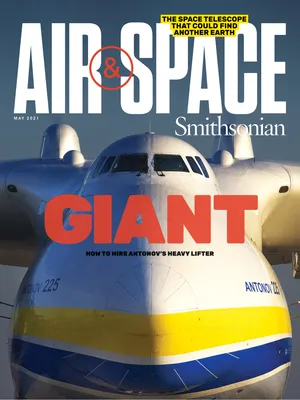This New Rolls-Royce Jet Engine Runs on Biofuel
With carbon emissions produced by aircraft expected to triple by 2050, the aviation industry is trying to go green.
:focal(1309x578:1310x579)/https://tf-cmsv2-smithsonianmag-media.s3.amazonaws.com/filer/85/cd/85cd5e20-c94a-438d-9c4f-7f44c5231955/32e_am2021_rrfive_live.jpg)
Rolls-Royce came a step closer in January to fulfilling its pledge to become a carbon-neutral company by 2050 with its successful test of 100 percent sustainable aviation fuel (SAF)in its business jet engine, the Pearl 700. The announcement follows another successful test using SAF in its larger Trent 1000 engine.
The aviation industry sees sustainable fuels as a key in reducing its carbon footprint. Only around two percent of all global CO2 emissions are produced by aviation, but by 2050 aircraft emissions are expected to triple.
While conventional aircraft fuel is refined from petroleum, SAFs are produced from diverse feedstock that includes municipal solid waste, used cooking oil, and algae. “We assess the environmental performance of SAF based on a lifecycle analysis,” says Robert Boyd, assistant director of aviation environment at the International Air Transport Association. That analysis includes emissions “from the growing or collection of the feedstock through to delivery of the fuel to the aircraft,” he says. For instance, fuel made from plant life instead of hydrocarbons emits less CO2, but has an even greater impact on overall emissions, because those plants also help absorb CO2. On average, SAF reduces carbon dioxide emissions by 80 percent over its lifecycle.
The aviation industry is currently permitted to use fuel with a blend of, at most, 50 percent SAF. Rolls-Royce says its successful test with 100 percent SAF will help lay the groundwork for moving such fuels toward certification.
/https://tf-cmsv2-smithsonianmag-media.s3.amazonaws.com/accounts/headshot/mark-strauss-240.jpg)

/https://tf-cmsv2-smithsonianmag-media.s3.amazonaws.com/accounts/headshot/mark-strauss-240.jpg)